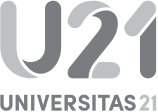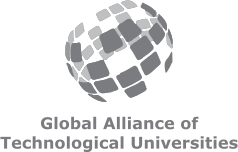Health Precincts Biobank FAQs (for participants)
What is the Health Precincts Biobank?
The Health Precincts Biobank (previously known as the Health Science Alliance (HSA) Biobank) is an initiative of UNSW Biospecimen Services and is a collaboration between UNSW Sydney and NSW Health Pathology.
Who can consent to the Health Precincts Biobank?
People being treated for a range of diseases at the Prince of Wales Hospital, Royal Hospital for Women, Prince of Wales Private Hospital, St George Hospital, St George Private Hospital and the Sutherland Hospital may be offered the opportunity to consent to the Health Precincts Biobank. One or more of the following biological specimens; tissue, blood, urine, fluid, saliva and/or mouth swab samples, along with accompanying personal and health information including non-identifiable scans, can be collected from patients who provide written consent.
To be eligible to participate, you must be 15 years or older, and attending a participating hospital. You will be required to understand and sign a consent form or have a guardian/carer sign it on your behalf.
What does consent involve?
Participation in the Health Precincts Biobank is incorporated into your routine medical care. For example, if you consent you may also be asked to provide a blood sample that can be collected during a routine blood test. If you are not due a blood test, you may be asked to provide a saliva sample or a small swab from inside your cheek. In some cases, urine and fluid samples are also collected. Once your procedure and diagnosis are completed, a pathologist will be able to reserve a small sample of any tissue not required for diagnosis to be stored in the Health Precincts Biobank.
What other health information will be collected?
The Health Precincts Biobank consent form will ask whether you give permission for access to extra information about your medical history such as your hospital medical records, and other health data collections of your past and future health. This information, paired with your samples will be deidentified prior to distribution to help researchers answer a wide range of research questions.
How can I be sure that my privacy will be protected?
Research is never conducted using information that names individuals. Your samples and data will be given a unique code and your name and other identifying information will be removed to ensure your privacy is maintained.
Do I have to take part in the Health Precincts Biobank?
Participation in all aspects of the Health Precincts Biobank is voluntary. You can say no to participation, and if you choose to participate you can withdraw your consent at any time if you change your mind. If you withdraw your consent, your samples and personal health information held by the Health Precincts Biobank will be destroyed. It will not be possible to remove materials from the Health Precincts Biobank that have already been used for research.
Choosing not to consent to the Health Precincts Biobank will not have any impact on your current and future medical treatment or your dealings with Medicare Australia.
If you wish to withdraw your samples and data from the Health Precincts Biobank please contact us by email HealthPrecinctsBiobank@unsw.edu.au or phone (02) 9065 5665
Will I be contacted again?
Once you have consented to the Health Precincts Biobank, you will not usually be contacted again and your signed consent form or a record of your participation is kept securely. If you are approached in the future to consent to the Health Precincts Biobank, simply tell your doctor or nurse that you have already consented. There is no problem with re-consenting to the Health Precincts Biobank at a later date.
What will happen to my samples and health data once they’ve been collected?
Your samples and data will be stored within Biospecimen Services at UNSW Sydney. Your name and identifying information will be removed to protect your privacy when samples and/or data are given to researchers.
Samples and data will be used for research and education purposes. Only researchers with projects that have been approved by a Human Research Ethics Committee can apply to access these samples and data.
Research will examine causes of disease, prevention, diagnosis, treatment and genetics. Education will involve teaching medical, science and nursing students.
How long will my samples and information be stored in the Health Precincts Biobank?
The samples and data in the Health Precincts Biobank can be kept indefinitely or until requested for ethically approved research.
Why does the Health Precincts Biobank want access to my Medicare and PBS records?
Medicare and PBS records provide helpful information about visits to health professionals, tests, and prescription medicines. This information is not always available through hospital records. This allows researchers to answer important questions about use of treatments and health services in the community, and to contribute to better patient care.
You can choose not to give the Health Precincts Biobank access to these records. This will not impact your medical care, your dealings with Medicare Australia, or your ability to donate tissue to the biobank.









